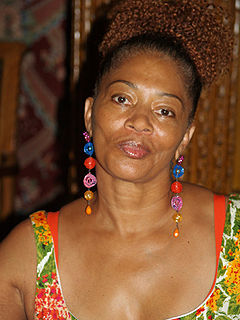A Quote by Andrzej Duda
It is not possible for any institutions to interfere in the way parents raise their children.
Related Quotes
To raise children you must have love and a wholesome understanding, and that is why a parent should pray fervently for their own salvation, so that their own sin does not get in the way. We can be saved from irritation and anger! Children can quickly sense if their parents are irritated, and then the children can be easily provoked and react stubbornly.
Westerners often laud their children as 'talented' or 'gifted', while Asian parents highlight the importance of hard work. And in fact, research performed by Stanford psychologist Carol Dweck has found that the way parents offer approval affects the way children perform, even the way they feel about themselves.
You must learn to look at people who are angry with you straight in the eye without getting angry back. When children see their parents treating them this way, they then recognize the parents' authority. It speaks louder than words. Their new respect for the parents is as good for them as it is for the parents. It never works to demand respect of children. It must be given willingly as a result of strength of good character in the parents, which is manifested by their non-reaction to stress in the children.
Parents still have primary responsibility for raising children, but they must have the power to do so in ways consistent with their children's needs and their own values.... We must address ourselves less to the criticism and reform of parents themselves than to the criticism and reform of the institutions that sap their self-esteem and power.
It is misleading to discuss recent changes in family life without emphasizing the fact that for generations some Americans have had to raise children under particularly appalling pressures. Although much of what is worrying American parents is shared by them all, the most grievous problems are those that especially afflict a large minority--the poor, the nonwhite and, in various ways, the parents of handicapped children.
Despite the long-term reduction in familial roles and functions, we believe that parents are still the world's greatest experts about the needs of their own children. Virtually any private or public program that supports parents, effectively supports children. This principle of supporting family vitality seems to us preferable to any policy that would have the state provide children directly with what it thinks they need.
Our contemporary society is experimenting with the diminishment of caregivers for children. Some children are raised through crucial stages of life by only one person. This one person, who strives to give the best, may be overwhelmed, busy, trying to raise many children. And even in homes with two parents, many children are essentially alone.
In my country, families are raised as though they are one. Although I am from the Dinka tribe, my parents didn't raise us as the Dinka tribe. They raised us as the Wek family, in the way they believed their children should grow up. So when you leave, the first thing you think is the ones you left behind. It's natural to help them in any way you can. I found a way to support myself rather than asking my Mum to give me money. I would work before school and send money back to pay for their rent and food.
































